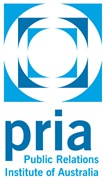Content curate, tell stories and connect with people.
Our public relations program is taught by industry professionals who know first-hand what it takes to have a highly successful career as a professional communicator within Australia and overseas.
Final intake for this program is Semester 1, 2017.
- Only a full-time option is available to international students on a Student visa. Online programs are not available to Student visa holders.
- * Estimated tuition fees are based on 2024 rates. Refer to international fees for more information.
- Not all majors/minors and elective options are available at every campus. You should refer to the What Can I Study tab, and the proposed study sequence for your chosen campus and intake for further information.
Our public relations program is taught by industry professionals who know first-hand what it takes to have a highly successful career as a professional communicator within Australia and overseas.
Our academic staff share insights based on their own professional experience excelling at social media, generating news stories, and organising events and campaigns for a range of clients from a multitude of industry sectors.
Tailor your study to your professional interest/s such as fashion, tourism, politics, public affairs, and not-for-profits. Develop and hone your skills in social media management, event organisation, crisis communication, event and campaign planning and social research.
This program develops professional communicators of an impeccable standard that are sought after by the public relations industry. In today’s rapidly changing technological environment, all professional fields require communication experts. The communication expertise gained in this program can be applied to any professional environment and will put students ahead of the game even if they choose another career path in the future.
The program is accredited by the Public Relations Institute of Australia (PRIA).
You’ll complete an internship in the PR industry in your final year of study. Your internship consists of 104 hours and gives you industry contacts and practical experience.
Complete a Work Integrated Learning course and team up with an external industry mentor to plan and deliver a public event for a local not-for-profit organisation. For example, a pop-up pet adoption day for the Sunshine Coast Animal Refuge that attracted more than 1000 people to the event. Students were responsible for delivering the entire event including the event concept, sponsorship, volunteers, media coverage and fundraising. Gaining practical experience such as this while at university is a unique and valuable opportunity for students.
This program helps you to gain industry experience and possibly secure a job before you graduate.
Career opportunities
Public Relations Consultant, Social Media Manager, Event Manager, Communication Manager, Corporate Affairs Manager, Media Liaison Officer,
Political Adviser, Crisis Communication Manager
Membership
Public Relations Institute of Australia
Program structure
Introductory courses (6)
PLUS select 3 courses from:
Advanced courses (12)
BUS320
CMN213
CMN216
CMN228
CMN231
CMN243
CMN251
CMN252
CMN253
CMN273
CMN276
INT270
Elective courses (6)
Select 6 elective courses. Of these electives, 2 must be advanced level (200/300 coded) courses and 6 may be from either faculty (Arts, Business and Law or Science, Health, Education and Engineering).
Note: Program structures are subject to change. Not all USC courses are available on every USC campus.
Total units: 288
Recommended study sequences
Program requirements and notes
Program requirements
In order to graduate you must:
- Successfully complete 288 units as outlined in the Program Structure
- Complete no more than 10 introductory level (100 coded) courses, including the core course
Program notes
- Completing this program within the specified (full-time) duration is based on studying 48 unit points per semester (normally 4 courses)
- Most courses are valued at 12 units unless otherwise specified
- Courses within this program are assessed using a variety of assessment methods which may include essays, seminar presentations, reports, in-class tests and examinations
- As part of your USC program, you may apply to Study Overseas to undertake courses with an overseas higher education provider
- Only a full-time study option is available to international students on a Student Visa
- Refer to the Planning your study page to manage your progression
- You may wish to use electives to complete an additional major or minor
- Register your selected major(s) and/or minor(s)
